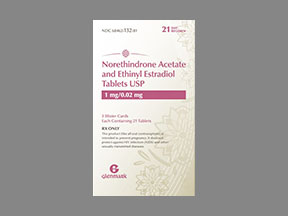Junel 1/20 is a limited distribution medication.

Junel 1/20 Coupons & Savings Card – Discount Prices from $7.49
Brand for: Norethindrone acet-ethinyl est
My prescription
Edit
1-20MG-MCG, Norethindrone Acet-ethinyl Est (21 Tablets)
Select pharmacy

CVS
$20.56
COUPON PRICE
Walmart
$7.49
COUPON PRICE
Walgreens
$11.16
COUPON PRICE
Albertsons
$11.68
COUPON PRICEJunel 1/20 savings card
Show this card to your pharmacist
Walmart
$7.49
BIN
ID
PCN
GRP
019876
LHC7892DC2
CHIPPO
LHX
Powered by
Price history for Junel 1/20 (brand) & Norethindrone Acet-ethinyl Est (generic)
21 Tablets, 1-20MG-MCG
Average retail price for Junel 1/20
Average retail price for Norethindrone Acet-ethinyl Est
Average SaveHealth price for Norethindrone Acet-ethinyl Est
Our price history data is based on aggregated prescription data collected from participating pharmacies in America. Our prescription data updates daily to reflect the latest price changes. If you notice a missing data point, it means there wasn't sufficient data available to generate a monetary value for that date.
Over the last 12 months, the average discount price of Junel 1/20 is $16.54 using the SaveHealth savings card. That's an average savings of 65.05% on Junel 1/20 with our discount card.
*Retail prices are based on pharmacy claims data, and may not be accurate when we don't have enough claims.
Junel 1/20 (Norethindrone Acet-ethinyl Est) dosage forms
Dosage Quantity Price from Per unit 1-20MG-MCG 21 Tablets $7.49 $0.36 1-20MG-MCG 63 Tablets $21.29 $0.34
| Dosage | Quantity | Price from | Per unit |
|---|---|---|---|
| 1-20MG-MCG | 21 Tablets | $7.49 | $0.36 |
| 1-20MG-MCG | 63 Tablets | $21.29 | $0.34 |
Is Junel 1/20 a good birth control?
Junel 1/20 is a commonly prescribed oral contraceptive that is considered effective for preventing pregnancy when taken as directed. It contains a combination of estrogen and progestin, which work together to inhibit ovulation, thicken cervical mucus, and alter the uterine lining to prevent pregnancy. As with any medication, its suitability can vary based on individual health factors and needs. It is important for individuals to consult with their healthcare provider to determine if Junel 1/20 is the right choice for them, considering any potential side effects or contraindications.
Does Junel Fe 1/20 stop your period?
Junel Fe 1/20 is a combination oral contraceptive that can affect menstrual bleeding patterns. While it may not completely stop a period, it can lead to lighter, shorter, or less frequent periods for some individuals. However, experiences can vary, and some may still have regular periods while taking it. If there are concerns about menstrual changes, it is advisable to consult with a healthcare provider.
Do you still ovulate on Junel Fe?
Junel Fe is a combination oral contraceptive that typically works by preventing ovulation. When taken as directed, it suppresses the release of eggs from the ovaries, thereby reducing the likelihood of ovulation. However, no contraceptive method is 100% effective, so there is a very small chance that ovulation could still occur.
Will Junel make me gain weight?
Weight gain is a potential side effect of Junel, a combination oral contraceptive. However, not everyone will experience this side effect, and any weight changes can vary from person to person. If there are concerns about weight gain or other side effects, it is advisable to discuss them with a healthcare provider.
Is junel a low hormone pill?
Yes, Junel is considered a low-dose hormonal contraceptive pill. It contains lower amounts of estrogen and progestin compared to some other birth control pills.
